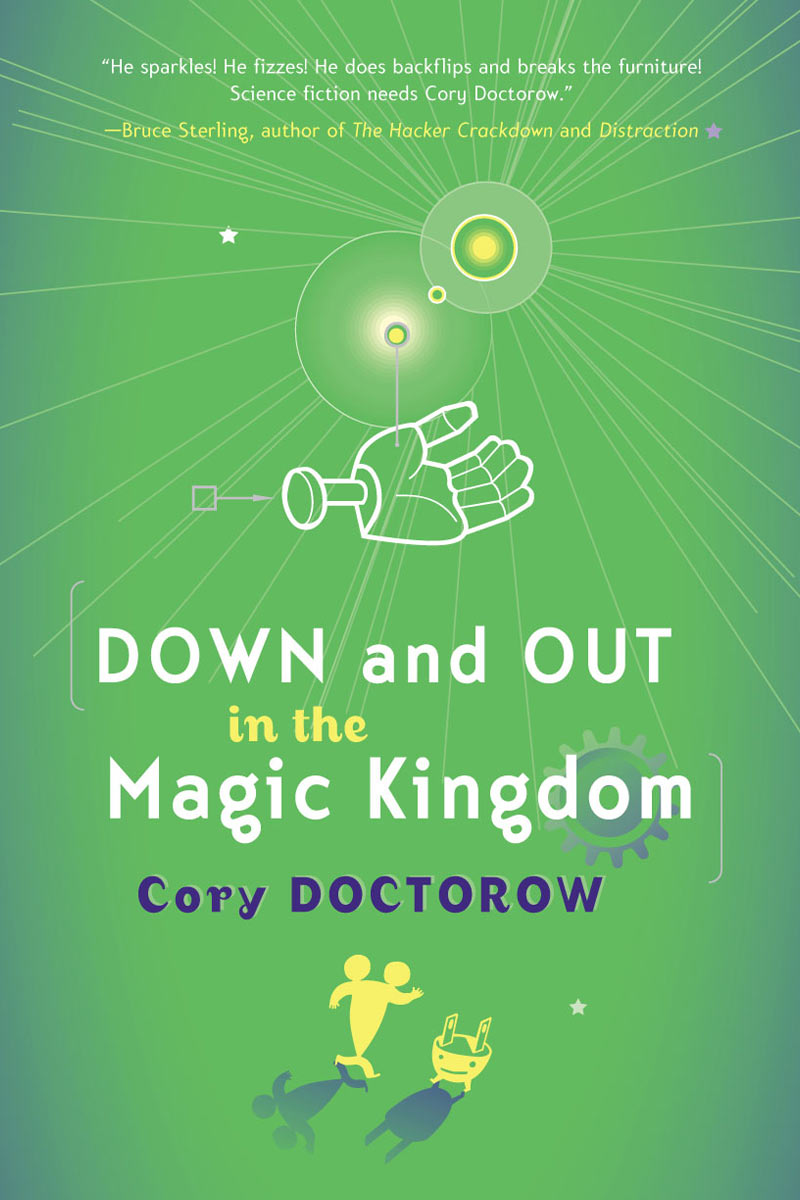Cory is a friend of mine, and I read an advance of “Down and Out” last year.
If you’re into SF at all, I think you’ll really like it. He does an amazing job creating this future world, without ever beating the reader over the head with his creation. He introduces us to concepts like “Whuffie” (sort of like Slashdot Karma, but in real life), “Dead Heading” (going into suspended animation for centuries at a time) and others without resorting to oblique definitions. Rather, the reader experiences these things firsthand. Cory’s writing is so simple and direct, it’s easy to know what’s going on, and his future world resolves itself very quickly.
This story centers around Jules, who is relatively young guy at just over a century old. He’s part of the Bitchun Society, which has its spiritual and cultural center at Walt Disney World in Florida. The resort is ruled by several different clannish “ad-hocracies,” who control the various lands within the parks.Jules’ girlfriend is part of the ad-hocracy that controls Liberty Square, including The Haunted Mansion.
Like all Disney visitors, Jules loves the The Mansion.He (and Cory, I bet) understands one of the main reasons it is so popular: it is timeless. Whatever the visitor’s age, whatever the year he visits, The Mansion will remain unchanged. So when The Mansion is threatened with revision and updating by a rival ad-hocracy, Jules takes desperate measures, and ends up murdered.
When he is restored from a memory backup, he takes the reader with him as he tries to find uncover his murderer.
I loved this book. The only thing Cory brings to life more vividly than the future WDW is the Bitchun Society itself. I was so engrossed in it, I didn’t want to leave.




























